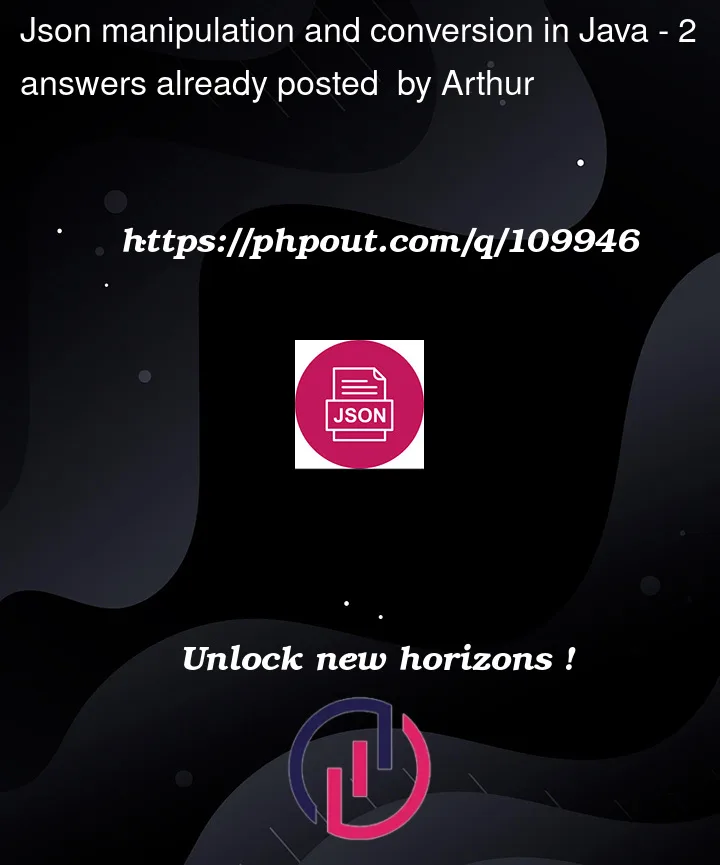I have an input json like:
{
"Employee": [
{
"employee1.id": 1
},
{
"employee1.name": "John"
},
{
"employee1.address.street": "main street"
},
{
"employee1.address.pin": "123456"
},
{
"employee2.id": 2
},
{
"employee2.name": "Mike"
},
{
"employee2.address.street": "51 street"
},
{
"employee2.address.pin": "234543"
}
]
}
And I am trying to convert it into:
{
"employee1":{
"id": 1,
"name": "John",
"address": {
"street": "main street",
"pin": "123456"
}
},
"employee2":{
"id": 2,
"name": "Mike",
"address": {
"street": "51 street",
"pin": "234543"
}
}
}
I tried to split the key from input json with dot i.e. ‘.‘ and tried to iterate over to construct a map: Map<String, Object>
But the problem is the input json key depth can go beyond 2 i.e. in future the input key can be like:
{
"employee1.address.tempAddress.street": "main street"
},
{
"employee1.address.permanentAddress.street": "main street"
}
So, is there any library available to achieve this, or anything closely related to this using which I can achieve this?




2
Answers
The comments about the input format being "weird" (to put it politely) are spot-on: This is a convoluted way to represent simple hierarchical data.
But sometimes we have to deal with sub-optimal input formats, that’s why we can fix them like this:
This code uses JSON-Java, probably better known as
org.json:json.And it can be used like this:
Note that this code is lacking proper sanity checks (some of which I’ve hinted at using
assert) and the nature of this "protocol" means that you can get misleading, ambiguous or straight up malicious inputs. For example nothing stops the input from having both"employee1.id": 1and"employee1.id": 2in there. How that is to be interpreted is up to the parser and such ambiguity is a great source of bugs and potential security issues.Library Josson can do the transformation by one expression.
https://github.com/octomix/josson
Output